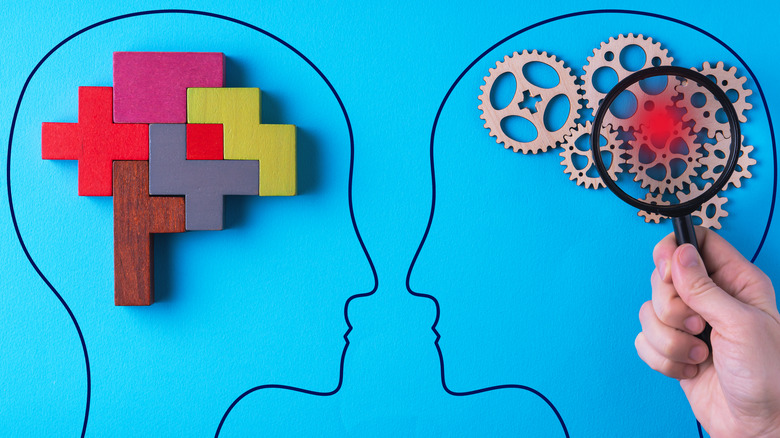Could Brain Stimulation Be The Key To Improving Short-Term Memory In Adults?
Our ability to think peaks when we're about 30 years old and our cognition slowly declines as we age, according to the Weill Institute for Neurosciences at the University of California San Francisco. Research on this age-related decline is looking for ways to identify and improve how brain circuitry affects memory. A new study published in Nature Neuroscience looked at how two parts of the brain associated with memory can be stimulated using electrical pulses to mimic brain waves in people between 65 and 88 years old.
The first experiment sent gamma waves to the prefrontal cortex of one group of participants and theta waves to the parietal lobe in a second group. A third group served as a control group. While each group received a 20-minute electrical stimulation treatment, the researchers read aloud a list of 20 words. The participants were given two minutes to recall the words on the list. Then the researchers gave the participants four more sets of 20 words to remember. The 20-minute treatments and recall tasks were repeated for the next three days.
Which areas of the brain affect memory?
The participants who received gamma waves to their prefrontal cortex could remember the first few words in each set of 20 words (per recent study). This told the researchers that the gamma waves stimulating the prefrontal cortex can possibly improve long-term memory. Those in the theta condition remembered the last few words in the recall task, which indicates that theta waves sent to the parietal lobe can enhance short-term memory.
The researchers then flipped conditions in a second experiment, where one group of participants had gamma treatment to their parietal lobe and another group had theta waves stimulating their prefrontal cortex. In this experiment, the researchers didn't find any differences in how the participants recalled the words across groups.
Finally, the researchers wanted to know if brain stimulation could endure after a month. They repeated the conditions of the first experiment, so they had the participants return after a month. Those in the gamma-prefrontal cortex condition still had improved long-term memory, and those in the theta-parietal lobe condition had improved short-term memory.
All in all, the study showed that stimulating the brain in certain areas can improve memory in older adults. However, researchers noted that more studies were needed to see if this improvement can endure longer than a month.


